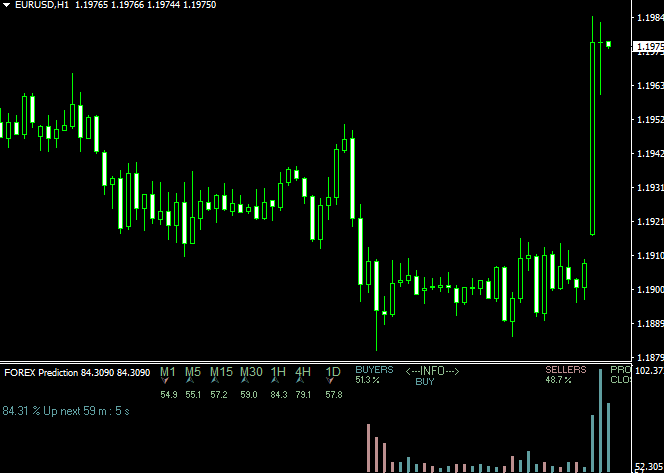In the world of forex trading, forex predictions play a vital role in helping traders make informed decisions about buying and selling currencies. In the first two paragraphs, we will explore how forex predictions are used and their significance in navigating the uncertainty of the currency market.
Understanding Forex Predictions
Forex predictions involve analyzing historical data, market trends, and various indicators to forecast the future movements of currency pairs. Traders and analysts use different methods, including technical analysis, fundamental analysis, and sentiment analysis, to make predictions about the potential direction and volatility of currencies.
The Significance of Forex Predictions
Informing Trading Decisions
Forex predictions provide valuable insights and information that traders can use to make informed trading decisions. By studying predictions, traders can assess potential risks and rewards associated with specific currency pairs, determine entry and exit points, and manage their positions effectively.
Risk Management
Predictions help traders anticipate potential market movements and adjust their risk management strategies accordingly. By understanding the possible scenarios and outcomes, traders can implement appropriate risk mitigation techniques, such as setting stop-loss orders and implementing position sizing strategies.
Market Analysis and Strategy Development
Forex predictions contribute to market analysis and assist traders in developing effective trading strategies. By studying predictions and analyzing historical data, traders can identify patterns, trends, and key levels of support and resistance, which can be used to formulate trading plans and strategies.
Methods for Forex Predictions
Technical Analysis
Technical analysis involves studying price charts, indicators, and patterns to identify potential future price movements. Traders use tools like moving averages, trendlines, and oscillators to make predictions based on historical price data.
Fundamental Analysis
Fundamental analysis focuses on economic indicators, news events, and geopolitical factors that can impact currency values. Traders analyze factors such as interest rates, GDP reports, employment data, and central bank announcements to predict currency movements.
Sentiment Analysis
Sentiment analysis involves assessing the overall market sentiment and investor psychology to predict currency trends. Traders monitor news sentiment, market sentiment indicators, and social media trends to gauge market sentiment and anticipate potential market shifts.
Conclusion and Suggestions
Forex predictions are an essential tool for traders in navigating the uncertainty of the currency market. They provide valuable insights, inform trading decisions, and assist in risk management and strategy development. Here are some concluding thoughts and suggestions when using forex predictions:
Diversify Your Sources: Rely on multiple sources for forex predictions to gain a comprehensive understanding of the market. Consider using reputable financial news outlets, research reports, expert analysis, and reliable trading platforms that provide reliable predictions.
Combine Different Approaches: Utilize a combination of technical analysis, fundamental analysis, and sentiment analysis to enhance the accuracy of your predictions. Each method has its strengths and weaknesses, and combining them can provide a more robust view of the market.
Regularly Update and Evaluate: Forex markets are dynamic, and predictions should be regularly updated and evaluated. Stay informed about economic indicators, news events, and geopolitical developments that can influence currency movements. Regularly reassess your predictions based on new information and adjust your trading strategies accordingly.
Practice Risk Management: Implement effective risk management techniques to protect your capital. Set stop-loss orders, use proper position sizing, and diversify your portfolio to minimize potential losses. Remember that no prediction is foolproof, and it’s important to manage risk carefully.
Learn from Mistakes: Forex predictions are not always accurate, and losses are a part of trading. Use your trading experiences, both successful and unsuccessful, to learn and improve. Analyze your trades, identify any mistakes, and adjust your approach accordingly.
Continuous Learning: Stay curious and committed to learning. Keep yourself updated with the latest trends, techniques, and advancements in forex trading. Attend webinars, read books, and engage with the trading community to expand your knowledge and stay ahead of the game







